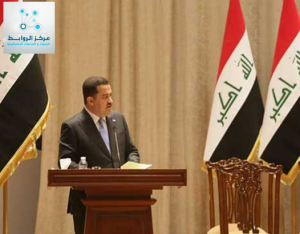By Shatha kalel
The first months of 2024 have witnessed significant changes in Iraq’s revenues and expenditures compared to the same period in 2023, reflecting the economic transformations led by Iraqi Prime Minister Mohammed Shia Al-Sudani and his government. This analysis aims to review these changes and assess their impact on the Iraqi economy.
Iraqi Revenues: Oil and Non-Oil Revenues
The data indicates that the contribution of oil revenues decreased in 2024 to 89.1% compared to 99.23% in 2023. This decline is attributed to the government’s success in increasing non-oil revenues, reflecting clear efforts to diversify income sources and reduce reliance on oil.
Income and Wealth Tax Revenues
The contribution of income and wealth taxes increased from 1.44% in 2023 to 2.1% in 2024. This rise reflects increased economic activity and improved efficiency in Iraq’s tax system, indicating the success of government policies in this area.
Commodity Taxes and Production Fees
These revenues saw a notable increase, rising from 0.87% in 2023 to 2.4% in 2024. This growth indicates a clear improvement in the tax system and increased tax compliance, strengthening the government’s role in providing the necessary resources for development.
Iraqi Expenditures: Current and Investment Expenditures
Despite an increase in current expenditures from 87.4% in 2023 to 90.0% in 2024, investment expenditures decreased from 12.6% in 2023 to 10.0% in 2024. This shift reflects the financial challenges facing the government, which may stem from the need to finance deficits or direct expenditures toward other priorities.
Economic Analysis: Diversification of Revenues
The increase in non-oil revenues demonstrates significant success in the government’s strategy to diversify income sources, which enhances the stability of the Iraqi economy and protects it from global oil price fluctuations.
Challenges in Expenditures
Despite the increase in revenues, there are still challenges in how expenditures are directed. The increase in spending on debt service and the decline in investment expenditures may hinder sustainable development, requiring the government to reassess its financial strategies for better resource distribution.
Future of the Iraqi Economy
If the government continues its efforts to boost non-oil revenues and improve expenditure management, Iraq’s economy is expected to experience more stable growth in the coming years. However, managing public debt and directing expenditures toward more productive sectors remain challenges that must be addressed to achieve sustainable economic development.
In conclusion, the first months of 2024 mark an important turning point in the path of the Iraqi economy, as the government has made progress in diversifying revenues despite the ongoing challenges in managing expenditures. Continuing these reforms will be crucial to enhancing economic stability and ensuring a better future for Iraq.
Economic Unit/North America Office
Al Rawabet Center for Research and Strategic Studies

